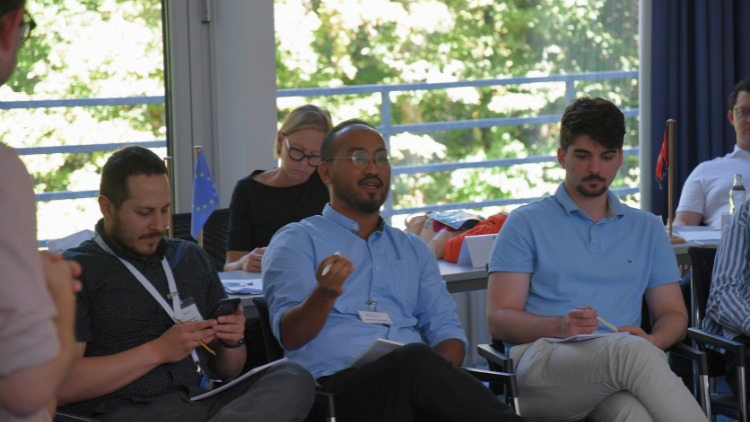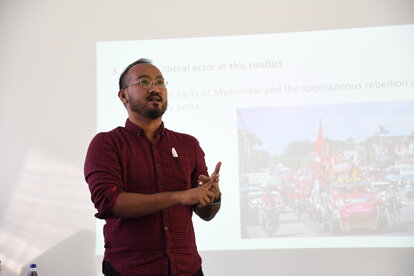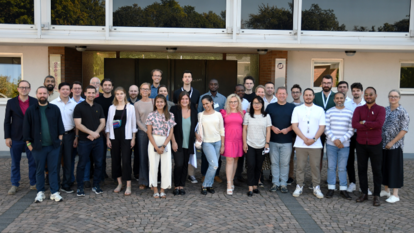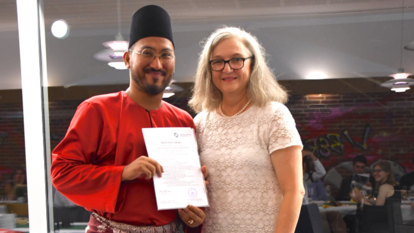IAF
Liberalism and Geopolitics: How to Deal With a Changing World Order

The dynamics of international relations and diplomacy are changing at an unprecedented phase. As a result of the major powers' rivalry, the global geopolitical landscape has changed dramatically over the years.
The Chinese’s assertive policy through its ambitious global scale ‘Belt and Road Initiatives’ (BRI) in 2013 and the Russian invasion of Ukraine in 2022, have alarmed the international liberal community on how to react and defend a democratic idea in the light of the changing world dynamic. Simply put, since the end of the Cold War, liberal theorists/analysts have been living in a complacent era and ultimately failed to foresee the emergence of another power structure that may pose a challenge to liberal democracy.
As the United States of America and the European Union's relations with China and Russia gradually deteriorate, understanding geopolitics is always essential, for it combines the political and geographical dynamics as a theoretical paradigm to analyse the arising strategic issues.
I was delighted to engage with a group of 25 global experts in a seminar on Liberalism and Geopolitics at the International Academy for Leadership (IAF) - Gummersbach from September 3rd to 10, 2023. The seminar is courtesy of the Friedrich Naumann Foundation For Freedom.
On the day of arrival (September 3rd), the participants were greeted by Bettina Solinger, the director of the IAF. We were briefed on the house rules that need to be observed throughout the seminar, followed by a scrumptious welcoming dinner (after a tiring long-haul journey) and the team-building activity afterwards. Through the team-building activity, participants familiarised themselves with the surroundings and bonding with fellow participants.
The seminar was divided into several thematic categories: global disorder, system disorder, military disorder, monetary & financial disorder, economic disorder, and information disorder. Each topic is connected and methodical, making it easier for the participants to make sense of the themes and contemporary issues. Nonetheless, robust discussion and enlightening ideas were exchanged based on regional experiences.
For instance, a fellow participant from Sri Lanka, Kavinda Ratnapala explains how China’s financial aid to the Rajapaksa regime subsequently threw the country into the abyss of political turmoil. On the other hand, Danyil Khokhlovych from Ukraine gave his insight into the Russo-Ukrainian conflict, which provided me with a clear perspective of the ongoing conflict.
Although the seminar was not designed to be academic, the participants were introduced to the classical concepts of geopolitics such as Mackinder’s ‘The Heartland Theory’ and how the concept afterwards influenced military conquest and shaped international relations. In my view, this provides the participants with a basic theoretical paradigm to understand the changing world dynamics. The Heartland thesis assumes:
- Industrialised heartland power will build rails and efficient modes of transportation,
- Thus, the industrialised heartland power will have a mobility advantage,
- Therefore, the industrialised heartland power will dominate the rimlands.

Over the years, the classical concepts were refuted and criticised by modern geopolitical theorists. Nonetheless, it laid down the foundation of the geographical paradigm in international relations and strategic studies.
Through the moderation of experienced trainers like Dr. Rainer Adam, Julius Freytag and Sven Gerst, fellow participants and I were taught to think as if we were the foreign policy advisors to the minister, by preparing policy dossiers in the case study situations activity. Other than vigorous discussion, thought-provoking exercises like a debate on global issues, certainly stimulate participants' thoughts in understanding the changing world dynamics.
Serious discussion does not mean without taking a break. An excursion to Cologne ultimately provides an opportunity for the participants to refresh their minds and explore the city where the famous cologne perfume was invented. The excursion was not without a crash course on medieval geopolitics. I was informed by the Program Assistant of IAF, Philipp Grzywaczyk that in the 12th century, the Archbishop of Cologne was one of the seven Electors of the Holy Roman Emperor.
Touring the Cathedral of Cologne was also followed by a quick lesson on the history of modern international politics. I was told the Cathedral was the only building that remained intact, while other places in Cologne were heavily bombarded by Allied powers in World War II. To sum it up, it was an information-laden excursion!
From my point of view, the most interesting part of the seminar was the engagement with a group of experts in the subject matter of foreign policy, defence, disinformation, and economy. I thoroughly enjoyed a session with guest lectures like Professor Daniela Schwarzer (German Council on Foreign Relations), Jan Friedrich Kallmorgen (Berlin Global Advisors), Kathrin Hille (Financial Times), Lea Sahay (Süddeutsche Zeitung) and Marie-Agnes Strack-Zimmermann (Chair of the Defence Committee of the German Bundestag). Altogether, I was contented to be given a chance to listen to Jeremy Shapiro’s sharing on ‘Alliances and Defence Policy’. As a long-time reader of the Foreign Affairs magazine, his regular analysis of the contemporary issue has always been intriguing.

Towards the end of the program, I gained a deeper understanding of geopolitics. As a political analyst, I am well aware of the decoupling strategy mainly advocated by the United States of America and its allied countries in the trade war with China.
Nonetheless, today’s world is interconnected in trade and business, and democratic countries must reconsider this strategy to protect their interests. Hence, de-risking is a feasible strategy to manage intractable relations, diffuse the intensity, and ultimately attain a ‘win-win situation’.
As someone coming from Southeast Asia, the region is once again in a precarious period since the end of the Cold War. The conflicts are brewing in the front and back of the region. Washington’s policy to prioritise Indo-Pacific and Beijing’s increasingly assertive policy in the South China Sea has once again pushed the region to the corner.
On the other hand, the inland of Southeast Asia is also simmering with conflict. China’s valve-like control of the river’s upstream gives Beijing considerable influence over its southward flows, which potentially disrupts the agriculture-based activity in at least 5 ASEAN countries. As an analyst, I perceive this situation as a ‘geopolitical time bomb’.
While navigating its foreign policy with such an amiable attitude, de-risking, hedging and neutrality are feasible options for a small country like Malaysia to hedge its bet and minimise geopolitical risk. Subsequently, safeguarding the democratic foundation of a country.

I would like to thank the IAF and Friedrich Naumann Foundation Malaysia for nominating me to the seminar.
Terima kasih!
Written by Rizal Hamdan - Executive Director of NADI Centre, Kuala Lumpur-based political consultancy.